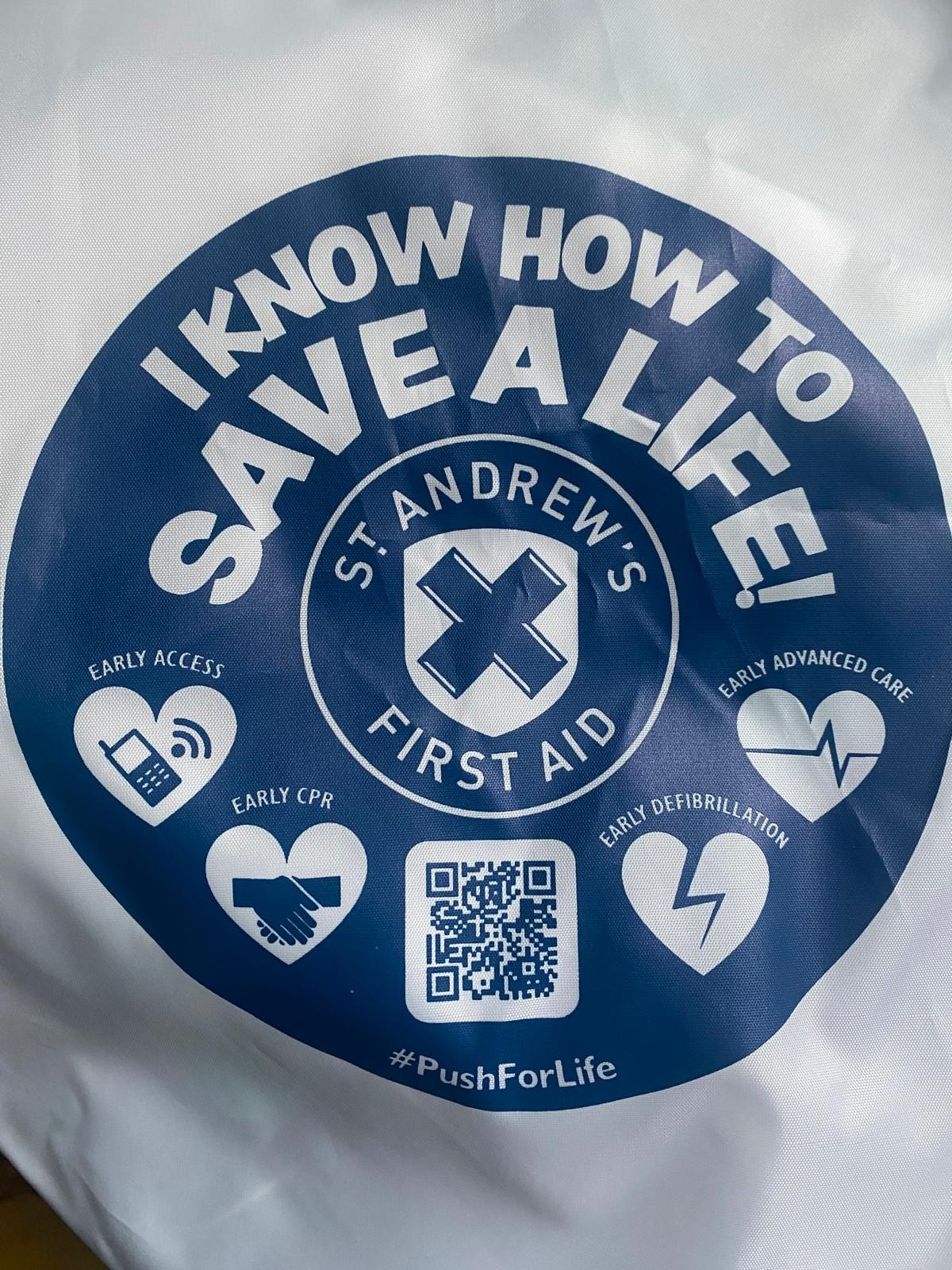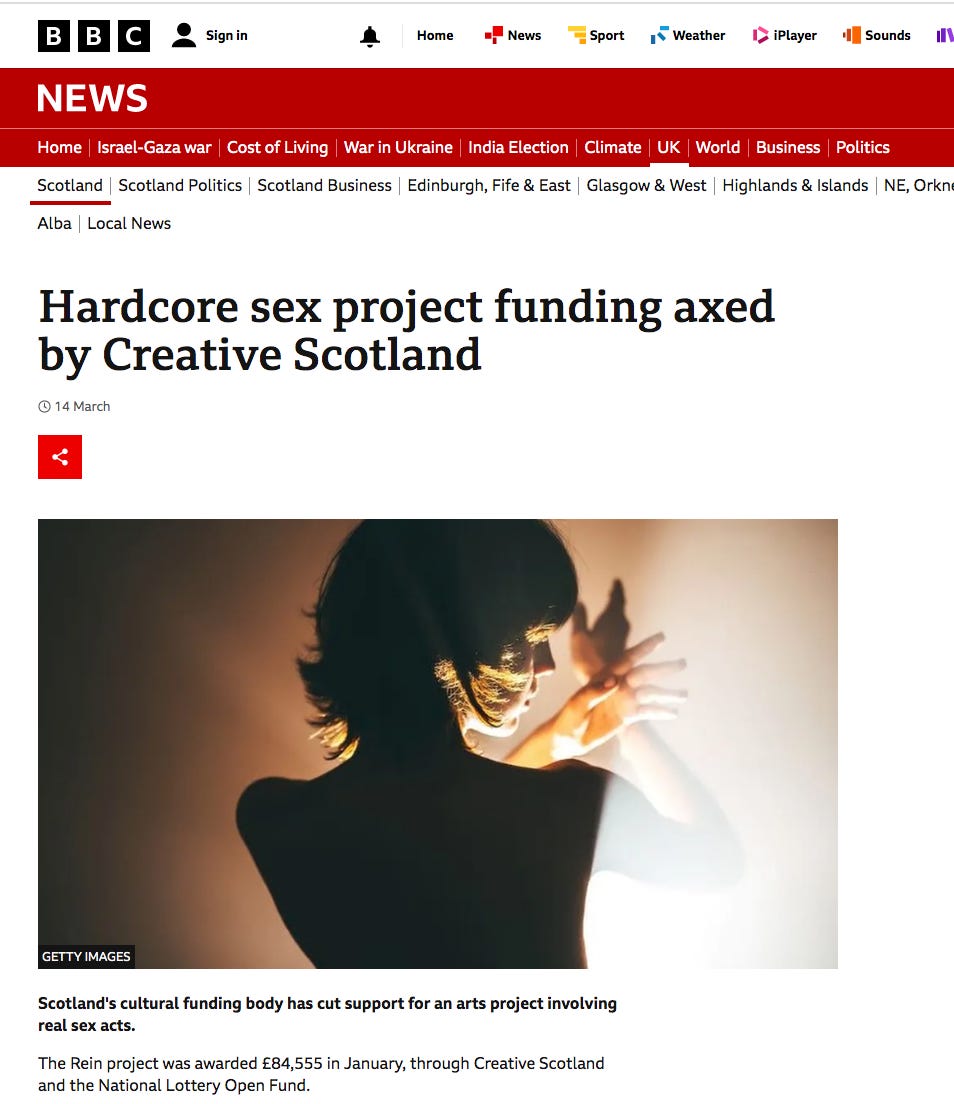Can My Child Save a Life?
Are we being fair to children?
Yesterday my child came home with a tote bag ‘prize’ he had been given for participating in a St. Andrew’s Ambulance Service ‘training’. My son is eleven.
“I know how to save a life!” the bag reads. But does he, does he really?
Special thanks to my current subscribers, if you are a free subscriber maybe you could consider becoming a paid subscriber? A yearly subscription is just £25 per year, £3.50 per month or founding membership £250. Every penny makes a difference & allows me to continue advocating for children & childhood. Or buy me a coffee? Thank you!!!!!!
For those reading from elsewhere, or who do not have children in school ‘Health and Wellbeing’ one of the central ‘pillars’ of the *actual* curriculum for Scottish Education. The St. Andrew’s First Aid course that was offered yesterday in my son’s school has been brought in to tick that box. The ways that individual schools address the H&W pillar is a wide church. Some (me) might say this is beyond the scope of what schools should be focusing on seeing that kids are leaving school illiterate and parents should be the moral and social arbiters of their children’s lives. It’s the wrong way round. I have spoken about that before.
But there is another thing. Can a one hour course really prepare a child to ‘save a life’? Like many of the Continual Professional Development Programs given to teachers (the therapy ones are notorious), do they give the illusion of capability when in fact it is the opposite? In this Podcast ‘Noggin Notes: Breaking the Silence: Unveiling the Truth About Mental Health Organisations’ two school educational psychologists speak honestly about the lack of regulation of these mental health organisations and practitioners in schools. They suggest that the practice of ‘doing nothing’ is sometimes the best approach for healing children’s psychological distress, and sometimes these programs *create* the problem. As the old mantra goes ‘time heals all things’. Joanna Williams also writes cogently on the harms of mental health education.
It is true occasionally we come across social media posts of children in incredibly heroic deeds in the face of crisis. But how realistic is this really? A friend of mine pointed out that most children will lack the muscle or bone capacity to do basic CPR, let alone do it to a position of life saving.
These programs may be ‘worthy’ and they may ‘look good’ but are they the best use of school time?
As I write this I am faced with another summer of trying to find camps and activities for my son. I am low income solo Mum so the choices are even more limited economically. But even with financial resources (I do not have) the options are thin on the ground. So far there are two weeks of football camps available via the council in ‘our area’ (albeit 2 miles away). It is possible we might not even be allocated a space (the easter program had a wait list the first day booking opened).
Last summer the only council funded program available was two 1.5 hour lunch sessions in the local school. I have found some art clubs available via the Glasgow School of Art (my continued commentary on the lack of good arts provision is personal as I see my own child would enjoy and benefit from such an opportunity) but in order to apply for the bursary scheme one must fill out a complicated application and provide ‘proof of poverty’ and personal statement exposing my child in ways the children who are paying do not. It is quite demoralising though of course I will do it.
So when I point out these chasms in priorities it is very personal. I champion for all children, but I feel it profoundly. My child is being denied basic childhood opportunities in the face of these virtue programs. And I can see this play across our country in thousands of kids lives. It’s strange we tell kids they ‘have the right to play’ but then lock up the playing field. We tell them ‘they have the right to an education’ but then feed them a diet of propaganda.
In the following post I wrote for The Scottish Union for Education I continue my exploration into the culture of disaster education being embedded into our school system. Children are being given a remarkable little amount of responsibility in the day to day, or the sense that their learning is important but extraordinarily weaponised for adult political aims via these programs. Children lose out. And society will be impoverished as a result.
What is risk?
Originally published in the Scottish Union for Education Newsletter 67 - 2 May 2024
In the book ‘The Coddling of the American Mind’ the authors Greg Lukianoff and Jonathan Haidt outline our failures societally wherein we cotton wool our children to ‘danger’ in order create a culture of safety. He argues that this leads to unhealthy children who are unable to meet the adult challenges of the world.
Conversely an organisation like Creative Scotland might argue that ‘artists’ are supposed to ‘take risks’ but when this risk translates as a ‘Secret Cave Sex Party’ one has to wonder where the arts are going, really (?!).
I was recently shown some of Picasso’s early work (14 years old!) which are a far cry from ‘I have gotten quite used to seeing most kids artwork look like Dogman’ as my son’s teacher recounted to me. (note: to her credit she is quite artistic with the kids)


It seems anymore that risk is relative (and art, for that matter). And what’s more relatives, as far as Scottish government is concerned are doing a shite job of keeping their children alive. Which is why educational policy starts from the remit that all children are neglected by their parents, which is why the state has to step in.
Enter Disaster Education Part 3.
In previous posts I demonstrated how our educational system seems obsessed with traumatising our children with the horrors of the world. From lessons delivered by SPCA on puppies being buried alive for 9 year olds to 7 year olds learning about brain aneurysms and CPR (they lack the physical capacity to deliver), to heartwarming posters made about death counts from the Pakistan floods- no potentially horrific subject is off limits to our educational authorities.

When I complained to the QIO of my son’s former school that I didn’t want my son ‘made into an activist’ or exposed to such content she informed me that Scottish Government Education’s purpose was to develop our children into global citizens. In my opinion this is the moral equivalent of sitting a child down to watch snuff films every day ad infinitum. One has to wonder if they even *like* children.
So perhaps it should come as no surprise that Edinburgh Council has a venue, program, “happening” (what is it?) called THE RISK FACTORY . Now hold your excitement lest you think this is a wonderful escape room styled experience in the home of the Edinburgh Fringe, led by fringe first winner Grid Iron Theatre Company It is not.
When a Mum messaged me with the details, and I shared it amongst other Mums some of the comments included
“My son wet himself on that program”
“That program made my child cry”
“My daughter and her friends still talk about how awful that was”
Aw bless. So what is it?
Well from the looks of it, it appears that rather then a trained actor delivering a quality script in an immersive theatre experiences, that’s fun, exciting and imaginative… (pshaw!) it’s Dougie from accounting in his high viz educating ‘wee Myrtle’ through environments set up to replicate the home how she might accidentally kill herself whilst making toast. So that’s… lovely.
In the words of Selma (who was one of the attendees of said program)
Because nothing says FUN like calling 999! (I mean c’mon what’s a Saturday like without at least one riotous call to emergency services, super duper!)
I have been told these programs have been going on for YEARS. In all my days in American education not ONCE was I subjected to ANYTHING like this. And yet, here I am, alive! Must be magic.
Yet for all the time wasted dedicated to these pursuits I can think of a hundred and one other things I’d rather school would be doing with my child’s time.
And back to Picasso. Reflecting on his work (as a FOURTEEN year old). How many of our children will actually have the opportunity to develop artistic skills? How many will be given the time to develop craft? How much of our children’s time is spent on these ‘anti-risk’ programs at the expense of something they would actually benefit from let alone become excellent.
I was thinking on my many visits to the Kelvingrove Art Gallery and the Burrell Collection here in Glasgow. And how I don’t *recall* seeing school groups. And then it occurred to me that my son (in Primary 6) has never visited any Glasgow arts venue in all his years at school (in school time).
My child would enjoy and benefit from arts instruction. I cannot afford to pay for private lessons. His old school did A LOT of poster making (like about death, and hate- man it’s all good times these days for kids) I suspect this ticked their ‘expressive arts’ box, but never are children given instruction on *good* poster design. They are not shown iconic posters. They are not taught about the use of font, colour, or perspective. All it does it gestate further mediocrity and reinforcing the idea of ‘being a good citizen’.
I informally asked parents on my social media pages as well as private groups regarding offerings of arts provision in their child’s school- it seems many parents experience the same. Mostly (like all the Curriculum for Excellence) is down to individual teachers interests and background. Leaving vital learning experiences to chance seems remiss for an educational program. And yet there is no end to disaster in the pledge of ‘safety’ wedged in. We are denying them the very wonderful things kids *actually* enjoy and benefit from, art, music, sport, expressive arts, adventure clubs…..
And so I leave you with.. yet again… we need to recognise, preserve, protect and celebrate childhood. It is precious and it will not come again. Let us be the adults in this world and create the foundational experiences which will build happy memories for a lifetime for our children.
Thank you for reading. I am still aiming to grow my substack audience this month - 30 for 30! 30 Paid Subscribers in 30 days. If you are a supporter already thank you. If not please consider taking a paid subscription for £25 for the year, £3.50 per month, or a founding membership for £250. Or buy me a coffee? My plan is to expand into podcast and video content in the autumn. Parents voices need to be heard, childhood needs to be prioritised!









